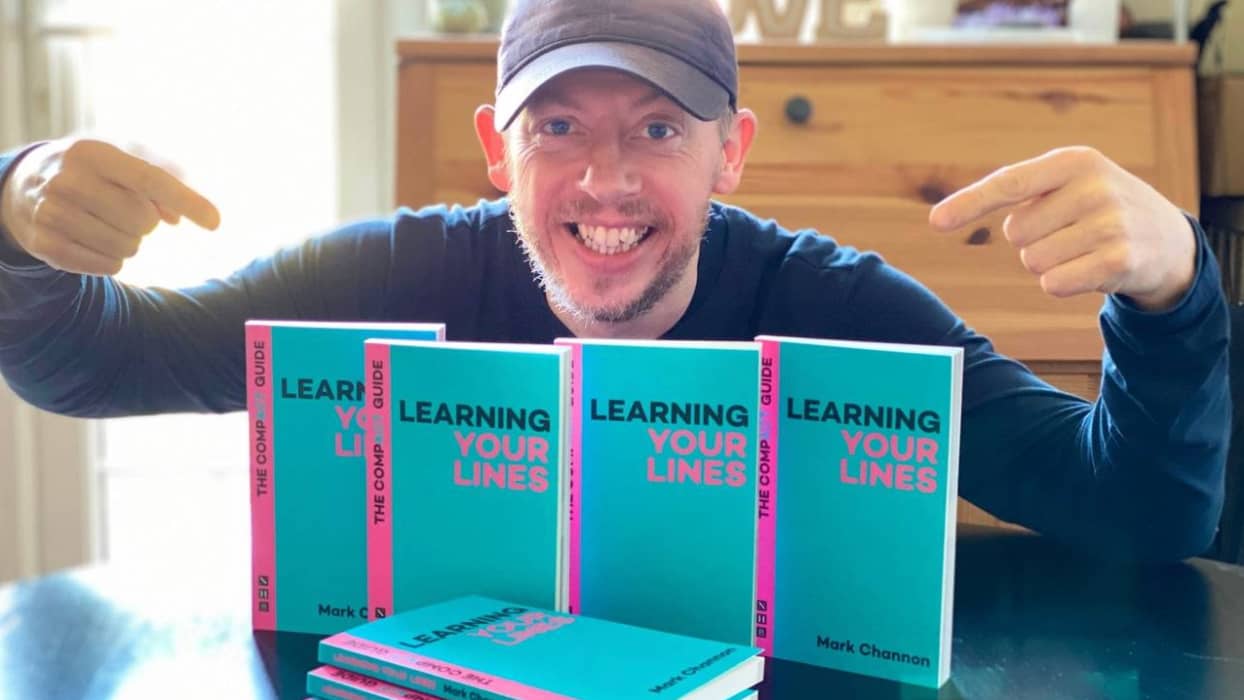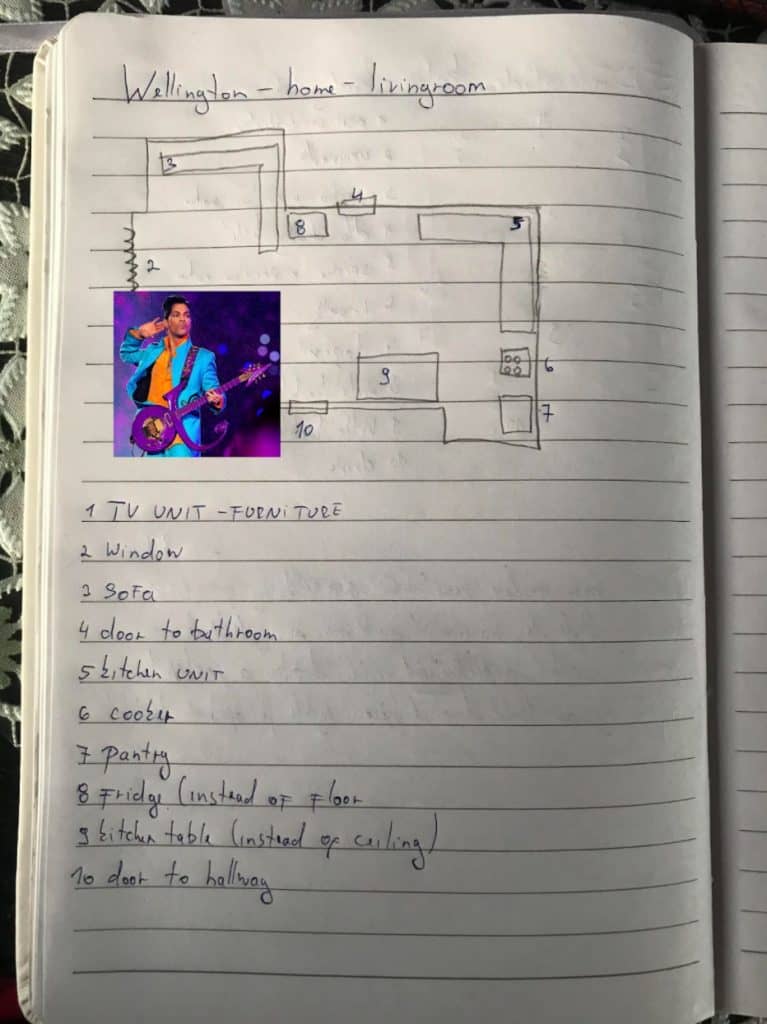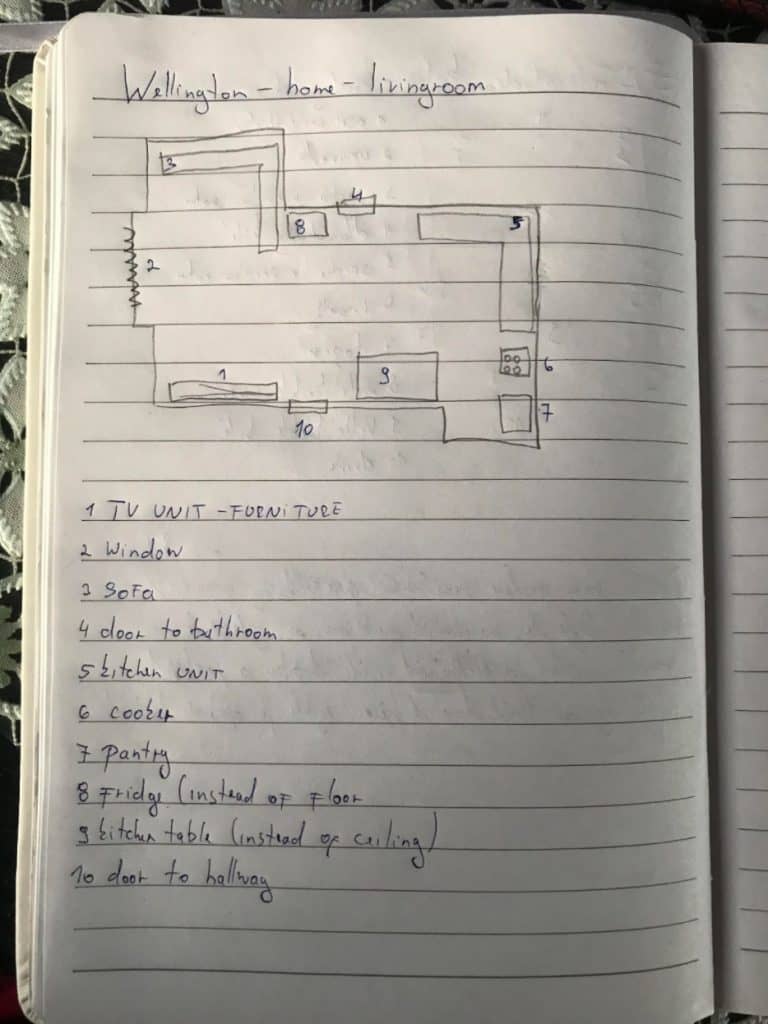 Want to know how to memorize lines fast?
Want to know how to memorize lines fast?
Here’s my big promise:
If you practice the simple techniques you’re about to learn, you’ll soon know how to memorize a script in one night. Maybe even faster.
This simple memory skill will not only lead to confidence at your auditions, but save you from tons of the stress that drains your performances of energy.
Are you ready to rapidly absorb your lines from any script or play?
Let’s get started.
How to Memorize Lines Fast: Six Proven Tips
According to actor and memory expert Mark Channon, there are 36 different memorization techniques for actors. These are compiled in his compact (yet epic) guide, Learning Your Lines.

Why should you care what Channon has to say?
Well, he’s a professional actor for one thing. He’s worked at the National Theatre and in the West End.
Plus, he became a Grand Master of Memory after winning the World Memory Championships.
In other words, the dude knows what he’s talking about. Frankly, his Memory Workbook is one of the most powerful resources I own.
Here are some highlights from his book, including some suggestions based on my own experiences. Although it’s not acting as such, a line is a line, and what I’ll share is based on how I memorized a speech verbatim for a TEDx Talk that currently has almost 2 million views!
Note: The following steps are not in any particular order of importance. Just add the ones that you like to your toolkit and feel free to come back for more anytime. Like acting itself, practice is the key.
One: Learn to Associate
Next to paying attention, association is the most important aspect of remembering anything.
Channon lists a few kinds that are useful for forming memories quickly:
- Imagined associations, such as using a cartoon character or celebrity to help you remember a line
- Personal memory association, i.e. using something from your life
- Thought association
- Abstract association
- Word association
Technically, I would suggest that all levels of association are word associations at the end. Even if abstract thinking might feel like it’s beyond words, usually you can use words to describe it nonetheless.
To give you an example of what I mean, let’s take “Prick us, do we not bleed?” from the Merchant of Venice (which may be worded differently depending on the folia).
A simple association would have the musician Prince using his guitar to prick people and draw blood. He could also be pricking a doughnut made from weed to help you remember the words “do we not.”
In this case, all of Mark’s categories are combined in one fell swoop. This kind of visualization has come to be known as the Magnetic Memory Method.
Two: Trigger Letters
Remember those tests in school where you had to fill in the blanks?
They were usually narrative sentences and you needed to write the best possible word so that it made sense.
You can do that with your scripts as well to help form memories faster.
Some people take this approach to the extreme by reducing sentences down to the first letter of each word. For example, “to be or not to be” would become:
T b o n t b
When you look at the letters, your job is to guess at what the full words should be. This is a scientifically valid approach related to a principle called active recall.
Nelson Dellis gives a video lesson on this technique:
But keep in mind that Nelson is a trained memory athlete and he told me in one of our interviews that he wouldn’t necessarily take this technique to the stage.
As Channon councils, you definitely want to make sure you’re using it in combination with strong visual cues. Like the kind we discussed in the first tip.
Three: The Memory Palace
Channon hits the goldmine when he teaches you the Memory Palace technique.
Orators have used this technique for thousands of years, and it is so powerful because it draws upon something your brain does on autopilot: Remembering places you’ve been.
As Channon puts it:
The Memory Palace takes advantage of your innately brilliant spatial memory. It works on the premise of taking a journey in your mind that you know well and placing the things you want to remember on locations along that journey; hence the other name for this strategy, the Method of Loci.
In other words, imagine that you need to know how to memorize a script in one night.
Instead of getting in a panic about it, you make a simple drawing of your home. Like this:
Don’t spend a great deal of time on this. Just 2-5 minutes max. I’m talking about drawing squares on paper and creating a quick list that helps reaffirm how you’re going to navigate this remembered space.
If you need more help with this step, please give my free Memory Improvement Kit a try.
Four: Place Your Associations In Space
Once you have a Memory Palace prepared, you’ll want to use the association strategy we talked about above.
Whenever you create an association, you’ll want to “place” it on a station in your Memory Palace.
By “place,” you might be wondering how to do this.
The act is purely imaginative. Some people need to have their association interacting with the exact location somehow. Others are happy to have it hovering above the space or otherwise just “there” somehow.
I personally don’t need to “connect” the association with the station and think of it more as “weaving” associations with space.
But sticking with the “prick us do we not bleed” example, you could imagine now Prince drawing blood from the wall of a room.

Personally, I find it faster to go without creating an explicit connection between the association and the location. That’s why I use the Magnetic Memory Method.
Five: Deepen Your Associations
After you’ve created your associations, take a moment to add multisensory layers.
I follow a simple model called KAVE COGS:
- Kinesthetic
- Auditory
- Visual
- Emotional
- Conceptual
- Olfactory
- Gustatory
- Spatial
It takes just a second to imagine what that sharp guitar feels like in your hands as if you were Prince pricking blood out of the wall.
Likewise, you can imagine the sound of the words “prick us do we not bleed” bursting out of the wall. You can see the whole episode and imagine the emotions you would feel if it were happening to you.
Although things like taste and smell might be a bit more challenging to work into your associations, I suggest giving them a try anyway. Because the results will be absurd, they will increase how easy the exact words are to remember.

Six: Walk The Journey
My speaking coach Thomas Krafft gave me the best advice.
He said that once I was done with memorizing lines for my performance, I need to walk while rehearsing them.
This suggestion proved golden. It allowed me to get all my muscles involved while filling my lungs and feeling my heart beating with the entire piece.
This tip involves scheduling. You need to make sure you have set the time aside to fit at least a few walks in.
But the good news is that when you use the association tips you’ve learned today, you’ll save hours of time and be able to rehearse much more from memory.
Whatever you do, don’t underestimate the role of getting your entire body involved by taking long walks. They’re also good for overall creativity too.
Finally, having “walked” your lines before a performance is great if you don’t have a chance to see your performance space first.
This is almost always the case with auditions, but also happens in improv and sometimes if you’re a replacement actor for a part. Having lived and breathed the part in several locations will do wonders for your ability to be real during your performance in locations you’re seeing for the first time.

The Best Way To Memorize Lines
In my view, actors are memory artists.
So the best way to really understand the role of memory in acting is to study from as many actors as you can.
Each will have their preferences and perhaps several levels of strategy depending on the context. For example, Dustin Hoffman says in his Masterclass that DeNiro likes to have his lines on cards he carries in his pocket. He’ll review them shortly before the director starts the scene because he doesn’t believe anyone would actually know what they’re going to say in advance.
But would DeNiro be able to use this technique on the theatre stage?
Probably not.
It is an interesting technique, however, and knowing about it is useful. It also helps round out how you think about memory.
So what do you say?
Are you ready to leave the standard advice behind and add some techniques from the masters of memory to your toolbox?
Enjoy using these techniques and I hope to see you on the stage and screen soon!
Related Posts
- How to Memorize The Preamble Fast in 4 Steps
Want to know how to memorize the preamble to the US constitution? Avoid the bad…
- Can You Memorize Books Page By Page Without Using Memory Techniques?
The answer? Probably not.
- How To Use Memory Techniques At The Grocery Store
Check out these quick tips for practicing memory techniques at the grocery store. You'll learn…





